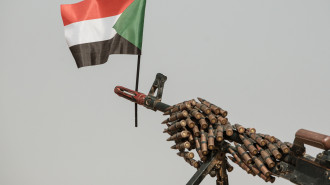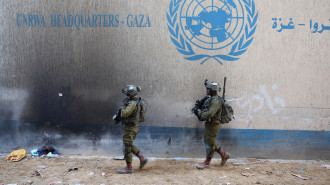
How Lebanon's ruling elite is navigating Nasrallah's absence

“We have regained our strength in the field and replaced our cadres. Not one position is vacant,” said former Hezbollah deputy secretary-general Naim Qassem in his third televised address since an Israeli airstrike killed veteran leader Hassan Nasrallah in southern Beirut.
Last Tuesday, Hezbollah’s main decision-making body, the Shura Council, appointed Qassem as its new secretary-general as the group seeks to reorganise after a month-long leadership void.
Israel, however, quickly challenged the appointment, calling Qassem’s tenure “temporary” and hinting at further action after assassinating both Nasrallah and his heir apparent, Hashem Saifieddine, within weeks.
“Temporary appointment. Not for long”, Israel’s then Defence Minister Yoav Gallant posted on X, alongside a photo of Qassem.
By targeting Nasrallah and much of Hezbollah’s first-generation leadership, Israel’s decapitation strikes have created space for other actors to manoeuvre within Lebanon’s governing structure.
Nabih Berri's interest in brokered solutions
Nabih Berri, leader of Amal, Hezbollah’s political ally and smaller member of the country’s so-called ‘Shia duo’, also serves as Lebanon’s Speaker of Parliament - the last fully functioning governing institution in the state, given the country’s vacant presidency and the cabinet’s caretaker role.
Without Nasrallah, Berri - whom Qassem recently referred to as Hezbollah’s ‘big brother’ - has gained “unprecedented room for manoeuvre”, according to Lorenzo Trombetta, a Middle East correspondent for ANSA and the Italian geopolitical magazine Limes.
“The weight of Nasrallah is no longer pressing down on him,” Trombetta told The New Arab.
Reports indicate the Biden administration is urging Lebanon’s political class to elect a new president, a process dependent on Berri, who holds the authority to convene parliamentary sessions and oversee rounds of voting until a candidate emerges victorious.
“Berri now sees himself more than ever as Lebanon’s kingmaker,” Trombetta explains, “controlling the pace and timing of parliamentary sessions almost at his discretion”.
|
|
Yet Berri has delayed holding an election, insisting on broad consensus. He knows Hezbollah may see a forced election as an attempt by the US and Israel to exploit its vulnerabilities by imposing an undesirable candidate.
The likely candidates are General Joseph Aoun, Lebanon’s army chief and a reported US favourite, and Suleiman Frangieh, leader of the Christian Marada party and Hezbollah’s endorsed candidate.
Trombetta notes that Berri’s influence will be crucial, either to advance a candidate or broker a compromise. A Joseph Aoun presidency, with backing from the US but ties to other alliances, could allow Berri to maintain his ‘dominant’ position while keeping dialogue open with various political factions, adds Trombetta.
Berri’s influence spans numerous state assets and sectors, from tobacco and agriculture in South Lebanon to civilian and logistical operations at Beirut International Airport. The ongoing war has severely impacted these areas, especially agriculture, intensifying Berri’s need to protect his networks.
War-related damage, explains Trombetta, likely motivates Berri to limit large-scale military activity to preserve these grassroots connections and safeguard his clientele. He has a vested interest in reaching compromises that prevent further destruction. With Joseph Aoun as president, Berri could retain his unchallenged grip while maintaining dialogue and negotiation avenues with other Lebanese actors.
However, Berri must tread carefully not to alienate his community by aligning too closely with US objectives.
“Berri, right now, faces a very challenging position given the anger and devastation within the Shia communities. He needs to be very careful about opportunism. It was Nasrallah that was killed in battle or plotting,” notes Nicholas Noe, co-founder of Mideastwire.com and editor of Voice of Hezbollah: The Statements of Sayyed Hassan Nasrallah.
Mikati's window: Diplomacy and business deals
With Hezbollah’s first-generation leadership in disarray, Lebanon’s billionaire businessman and caretaker Prime Minister Najib Mikati also sees an opportunity to operate more freely.
Three weeks after Nasrallah’s assassination, Mikati issued a rare rebuke to Iran, calling for Tehran’s envoy to be summoned over reported comments from a senior Iranian official offering to help “negotiate” to implement a UN resolution in Lebanon. Mikati denounced the remarks as “a blatant interference in Lebanese affairs”.
“Mikati, perhaps even more than Berri, has acted somewhat more unscrupulously in recent weeks,” Trombetta notes. Public criticism of Iran by Lebanon’s top officials is unusual, especially as Tehran supports and funds Hezbollah, which is currently locked in battle against Israeli troops along Lebanon’s southern border.
In his caretaker role, Mikati has also intensified his diplomatic outreach. After Israel escalated attacks on Lebanon on 23 September, he met with several foreign leaders, including Italian Prime Minister Giorgia Meloni and French Foreign Minister Jean-Noël Barrot.
|
|
During these meetings, Mikati emphasised Lebanon’s commitment to UN Security Council resolution 1701, which ended the 2006 Hezbollah-Israel war and requires Hezbollah’s fighters and weapons to remain north of the Litani River.
By doing so, he distanced himself from what Michael Young, senior editor at the Carnegie Middle East Center, calls the ‘logic of resistance’ - a stance that endorses Hezbollah’s military presence in South Lebanon under the Unity of Arenas strategy.
Ever the businessman, Mikati has also sought France’s bonne grâce since Nasrallah’s death, though he knows "real power" to shift Lebanon’s balance of forces does not lie in Paris, as Joseph Daher, author of Hezbollah: The Political Economy of Lebanon’s Party of God, told The New Arab.
In 2021, Mikati handed control of the Tripoli container terminal to the French shipping giant CMA CGM, owned by the Saadé family, who are close to President Macron. Following the 2020 Beirut Port explosion, Mikati announced a government plan to rebuild the port.
Just a week later, however, CMA CGM secured a 10-year contract to operate Beirut’s container terminal, consolidating its hold over Lebanon’s main import-export hubs. The government awarded the contract without completing the new master plan or drafting the port-related legislation Mikati had previously proposed, leading to speculation of a backroom deal between Mikati and the Saadé family.
Mikati’s recent overtures to France are hardly altruistic, Trombetta suggests, describing them as "an opening of the comptoir". Mikati appears to be signalling, “I am here in the West, and any reputable actor interested in business with me is welcome”.
Hariri's relaunch of Future TV
As Berri and Mikati seize new opportunities, Saad Hariri, the historic leader of Lebanon’s Sunni community, is also making a comeback.
Future TV, the media arm of former prime minister Hariri and his Future Movement, recently announced its relaunch after a five-year suspension. In 2022, Hariri withdrew from politics and suspended the Future Movement’s operations after his primary backer, Saudi Arabia, expressed dissatisfaction over his support for General Michel Aoun and his Hezbollah-allied Christian party.
“It’s hard to know what Saad Hariri is thinking, but he definitely seizes the moment, or he has enough money to restart Future TV,” says Joe Macaron, Global Fellow with the Wilson Center’s Middle East Program.
To mount a serious comeback, Macaron suggests, Hariri will need to reconcile with a major outside stakeholder: Saudi Arabia. “Clearly, he sees an opportunity; otherwise, he wouldn’t invest money in a project that has already suffered a lot of losses, mismanagement, and firing of employees,” he adds.
On 14 February, Hariri visited Beirut to commemorate the anniversary of his father’s assassination, making a rare public appearance.
Karim Bitar, associate professor of international relations at Lebanon’s Université Saint-Joseph, believes Hariri may be taking the long view. With next year marking the 20th anniversary of his father’s death, Bitar notes, Hariri likely wants to signal that he remains a presence in Lebanese politics.
Vittorio Maresca di Serracapriola is a researcher and analyst specialising in political economy. He has worked at Triangle, a Beirut-based think tank, and was previously an economics reporter at Reuters. He holds an MSc in Economic History from the University of Oxford
Follow him on X: @vittoriomaresc1


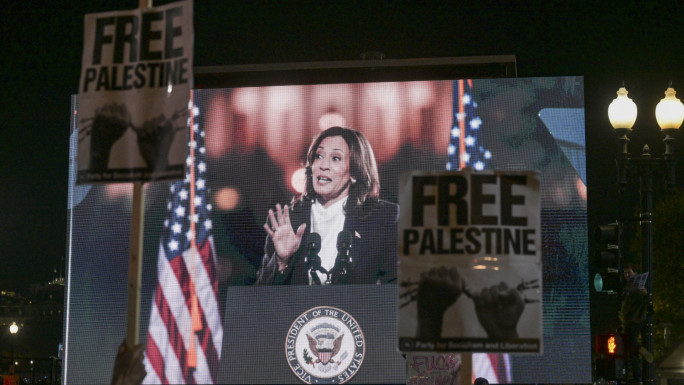
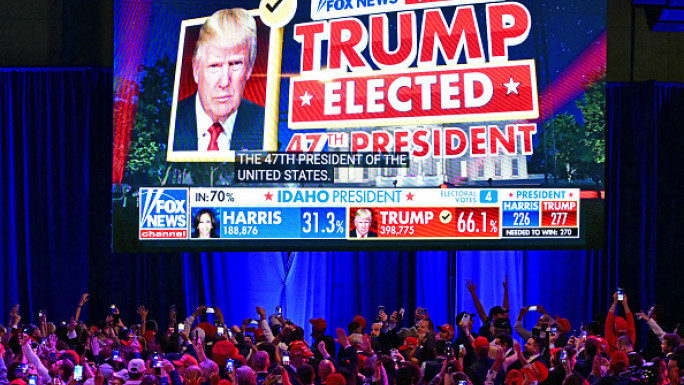
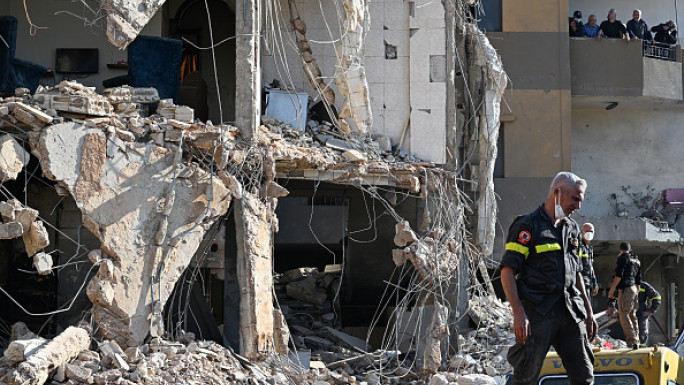
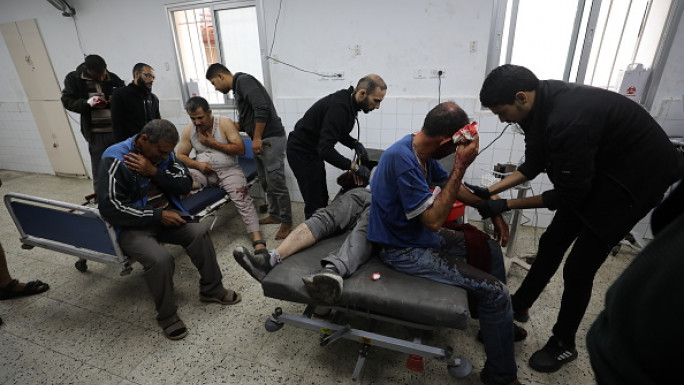
 Follow the Middle East's top stories in English at The New Arab on Google News
Follow the Middle East's top stories in English at The New Arab on Google News
